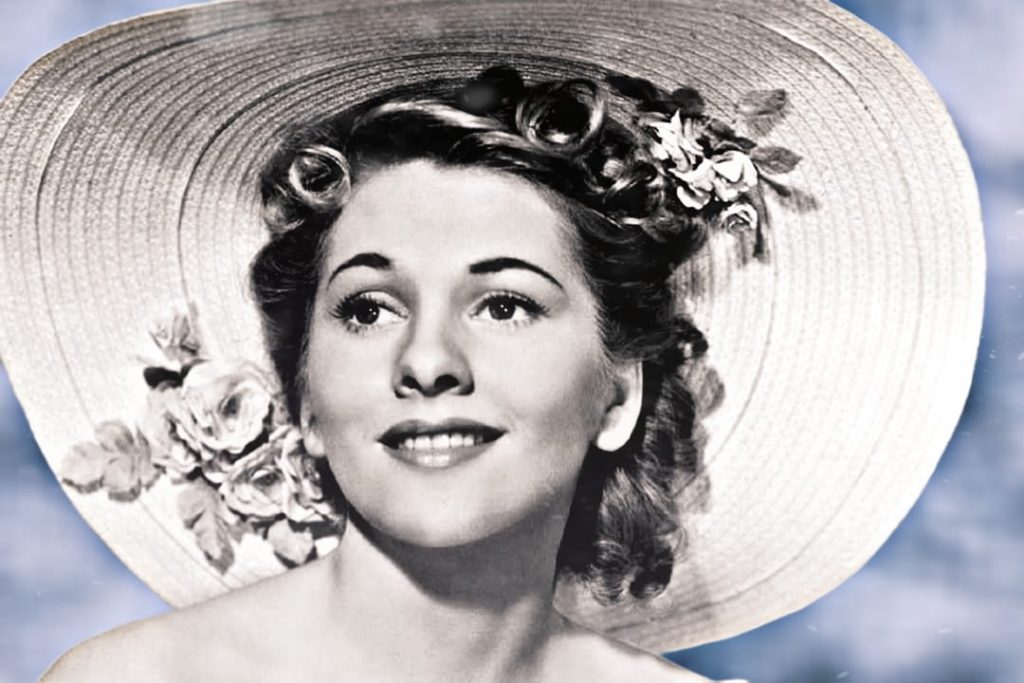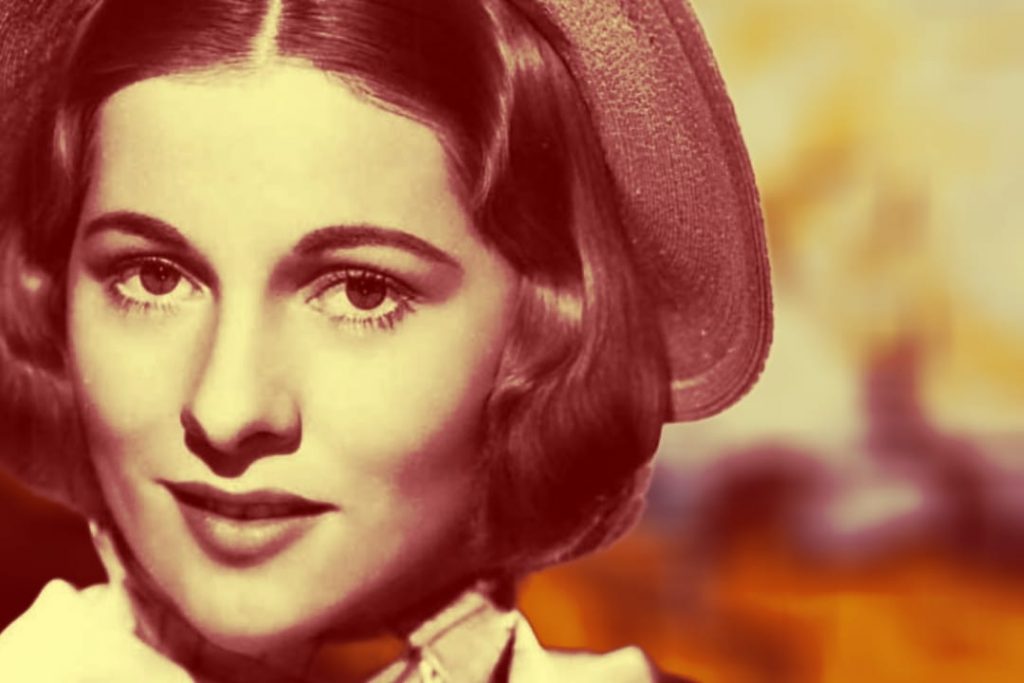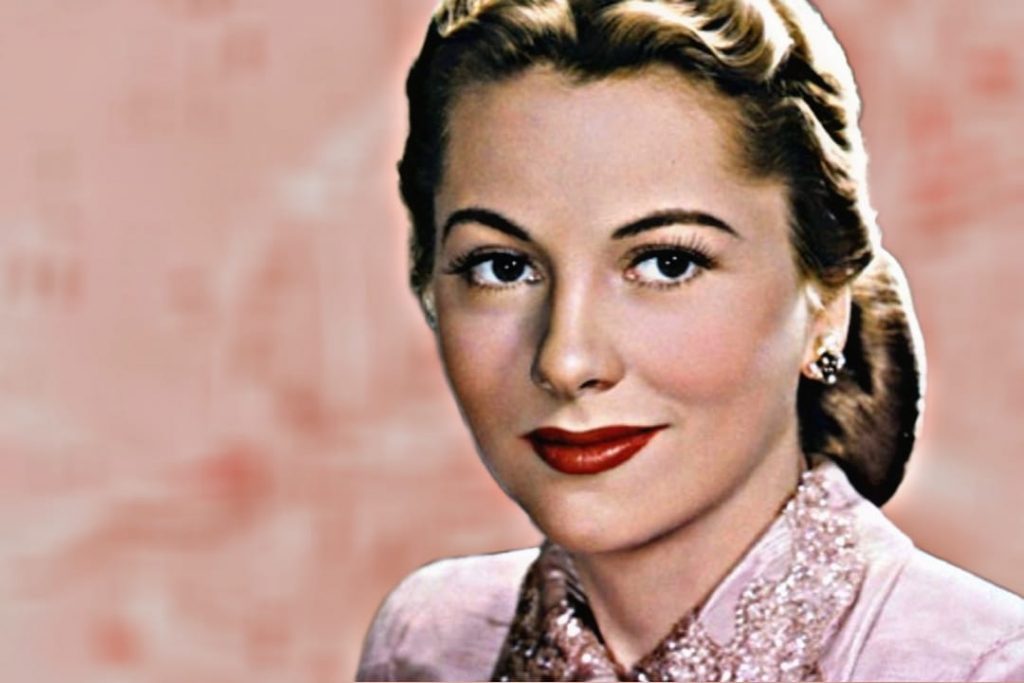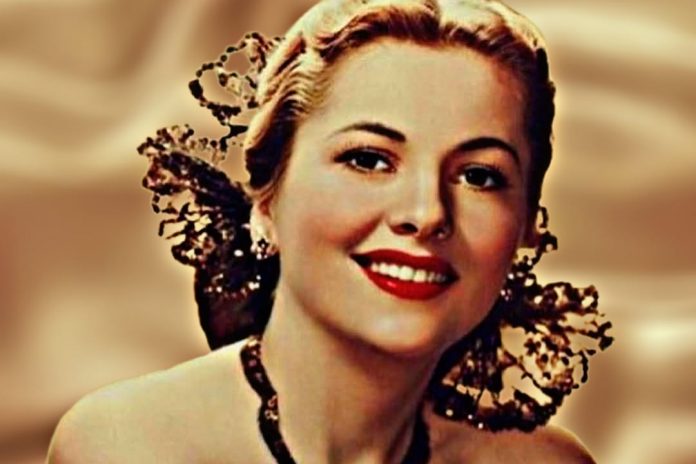Joan Fontaine, one of Hollywood’s most celebrated actresses, left an indelible mark on cinema during the Golden Age of Hollywood. Known for her delicate beauty, striking performances, and remarkable versatility, Fontaine’s career spanned over five decades, from her early years as a contract player at RKO to her later work as an accomplished stage and television actress. Her most memorable roles in films like Rebecca (1940) and Suspicion (1941) earned her critical acclaim and an Academy Award for Best Actress. Despite her undeniable talent, Fontaine’s life and career were also filled with personal struggles, rivalries, and controversies, making her an enigmatic figure in Hollywood history.
In this article, we will explore the life, career, and lasting impact of Joan Fontaine, as well as delve into her personal and professional challenges. Through her unforgettable performances and complex personality, Fontaine remains an enduring icon of cinema, remembered both for her craft and her fascinating life story.
Early Life and Family Background

A Birth Amidst Hollywood’s Golden Age
Joan de Beauvoir de Havilland was born on October 22, 1917, in Tokyo, Japan, to British parents, Walter de Havilland, a respected patent attorney, and Lilian Fontaine, a former stage actress. Joan had an older sister, Olivia de Havilland, who would go on to become one of the most iconic actresses of her time, known for her roles in films like Gone with the Wind (1939) and The Heiress (1949).
The Fontaine sisters’ early years were marked by a tumultuous family environment. After their parents’ divorce, Joan and Olivia were separated, with Joan remaining with their mother in California. Joan’s early exposure to the world of theater through her mother’s connections would eventually lead to her pursuit of an acting career.
Entering the Hollywood Spotlight
Joan Fontaine’s early interest in acting led her to attend the famous Hollywood High School, where she honed her craft and quickly became involved in local theater productions. In 1935, at the age of 18, she was offered a contract with RKO Pictures. Despite initial hesitations and a lack of self-confidence, Fontaine embraced the opportunity and soon began appearing in small, uncredited roles in films such as No More Ladies (1935) and Kiss and Make Up (1934).
Her breakout role came in 1939 when she was cast in the film Gunga Din, but it wasn’t until 1940 that Fontaine truly made her mark with Alfred Hitchcock’s Rebecca. Her role as the second Mrs. de Winter opposite Laurence Olivier was a critical success, establishing her as a talented actress in Hollywood and leading to an enduring collaboration with the legendary director.
Hollywood Stardom: Rebecca and Suspicion

Rebecca: A Defining Role in Fontaine’s Career
In 1940, Joan Fontaine’s career reached a turning point with Rebecca, Hitchcock’s first Hollywood film and an adaptation of Daphne du Maurier’s novel. Fontaine played the unnamed second Mrs. de Winter, a shy and insecure young woman who marries the wealthy widower Maxim de Winter (played by Laurence Olivier). The film’s gothic atmosphere and the psychological depth of Fontaine’s character helped elevate the film to classic status and earned Fontaine a nomination for the Academy Award for Best Actress.
The success of Rebecca firmly established Fontaine as a leading lady in Hollywood, and she quickly became one of the most sought-after actresses of the era. Her ability to convey vulnerability and internal conflict made her a perfect fit for the roles of complicated, often troubled women. While Rebecca remains one of her most iconic roles, it also marked the beginning of a career that would see Fontaine oscillating between glamorous roles and more nuanced, psychologically complex characters.
Suspicion: An Oscar-Winning Performance
In 1941, Joan Fontaine starred in another iconic Hitchcock film, Suspicion, opposite Cary Grant. Fontaine played Lina McLaidlaw, a young woman who begins to suspect that her charming husband, Johnnie Aysgarth (Grant), may be trying to kill her. Suspicion showcased Fontaine’s ability to play a character torn between love and fear, and her portrayal of Lina was both tender and suspenseful.
Fontaine’s performance in Suspicion earned her the Academy Award for Best Actress, making her one of the few actresses of her generation to win an Oscar for a Hitchcock film. The win was a significant achievement in her career, solidifying her position as one of Hollywood’s brightest stars and an actress capable of both emotional depth and dramatic tension.
A Complex and Multifaceted Career

The ‘Hollywood Cold War’ with Olivia de Havilland
While Joan Fontaine’s career soared, her personal life was marked by a highly publicized and longstanding rivalry with her older sister, Olivia de Havilland. Both actresses found success in Hollywood, but their relationship was fraught with tension, competition, and unresolved family issues.
The rivalry between the two sisters reached its peak in the 1940s, when they were both nominated for Oscars in the same year: Olivia for To Each His Own (1946) and Joan for Suspicion. Joan won the award, which intensified the already strained dynamic between the two. Over the years, the sisters’ relationship deteriorated to the point where they reportedly did not speak for several decades. Joan later wrote in her memoirs that their rivalry had its roots in their mother’s favoritism and emotional manipulation, which affected both of their careers and their personal lives.
Despite this complicated family dynamic, Joan Fontaine remained a professional and focused actress. She continued to take on roles that showcased her versatility, from romantic leads to more dramatic and intense characters.
Post-Hitchcock Career: A Shift Toward Drama and Noir
After the success of Suspicion, Joan Fontaine found herself somewhat typecast in similar roles — often playing women in distress or troubled relationships. However, she sought to break free from this pattern and began to pursue more varied and complex roles. She starred in The Constant Nymph (1943), a romantic drama in which she portrayed a woman caught in a love triangle, and Letter from an Unknown Woman (1948), directed by Max Ophüls, in which Fontaine’s performance was widely praised.
In the 1940s and 1950s, Fontaine also became a prominent figure in film noir, taking on roles in movies such as Ivy (1947) and Born to Be Bad (1950). These films allowed Fontaine to explore darker, morally ambiguous characters, which showcased her ability to delve into more complex psychological territory.
Throughout the 1950s and 1960s, Fontaine’s star began to dim slightly, though she continued to take on roles in both film and television. While she never again reached the same heights as she did during her Hitchcock years, her body of work remained impressive, and she continued to receive recognition for her contributions to cinema.
Joan Fontaine on Stage and Television
Joan Fontaine was also an accomplished stage and television actress. In the 1950s, she made her Broadway debut in the play The Constant Wife (1951), which was well-received. She later appeared in various television dramas, including anthology series like Alfred Hitchcock Presents and The Love Boat. These appearances allowed Fontaine to stay connected with her audience, despite the decline in her film roles.
Her stage and TV work allowed Fontaine to showcase her enduring appeal and her ability to captivate audiences in a variety of mediums. She later said that the theater was where she truly felt at home, and her performances on stage demonstrated a range and depth that complemented her earlier screen work.
Personal Life: Marriages, Children, and Challenges
Marriages and Family Life
Joan Fontaine was married four times during her life. Her first marriage, to actor Brian Aherne, ended in divorce, and her second marriage, to producer William Dozier, also ended in separation. Fontaine’s third marriage, to artist and author George Falkner, lasted from 1952 to 1961, and they had one child together, a daughter named Deborah.
Her fourth marriage, to journalist and author Alfred Wright, was brief, and Fontaine later spoke about the difficulty of maintaining a stable personal life due to her career and the pressures of Hollywood fame.
Despite her multiple marriages, Fontaine remained fiercely independent and often struggled with balancing the demands of her career and her personal life. She once remarked that her roles often reflected her personal struggles and the complexities of her emotional life.
Later Years and Reflection
In her later years, Fontaine lived a quiet life, residing in California. She occasionally made public appearances, but her focus shifted to writing and her family. In 1978, she published her memoir, No Bed of Roses, which provided readers with an inside look into her career, her rivalries, and her complicated family dynamics.
Joan Fontaine passed away on December 15, 2013, at the age of 96. Her death marked the end of an era for Hollywood, as she was one of the last remaining stars from the Golden Age of cinema.
Joan Fontaine Legacy in Hollywood
A Lasting Influence
Joan Fontaine’s career remains a testament to the power of elegance, intelligence, and emotional depth. Her work with Alfred Hitchcock, in particular, solidified her place in cinematic history, and her Academy Award-winning performance in Suspicion remains one of her most beloved achievements. Fontaine was known for her vulnerability on screen, yet she often played characters with inner strength and resolve, making her a versatile and compelling actress.
Her contributions to film, television, and theater helped shape the Golden Age of Hollywood, and her performances continue to resonate with audiences today. Joan Fontaine’s legacy lives on through her films, her performances, and the enduring influence she had on the actresses who followed in her footsteps.
Final Thoughts
Joan Fontaine’s career was marked by brilliance, complexity, and a legacy of unforgettable performances. From her breakout role in Rebecca to her Oscar-winning turn in Suspicion, Fontaine became one of the most influential actresses of her era. While her personal life was often tumultuous, she channeled her experiences into her work, making her one of the most captivating and versatile actresses of Hollywood’s Golden Age.
Joan Fontaine’s contributions to cinema, her iconic roles, and her fascinating life story make her an unforgettable figure in film history. Though she may have faced challenges in her personal and professional life, her legacy endures, ensuring that she will always be remembered as one of Hollywood’s true legends.

